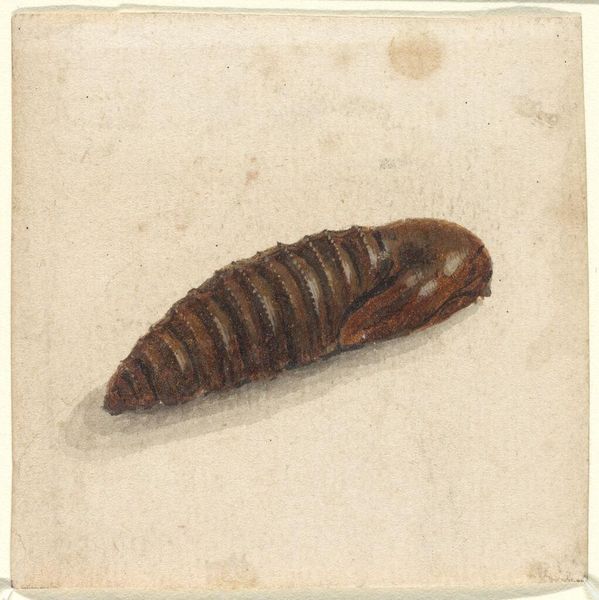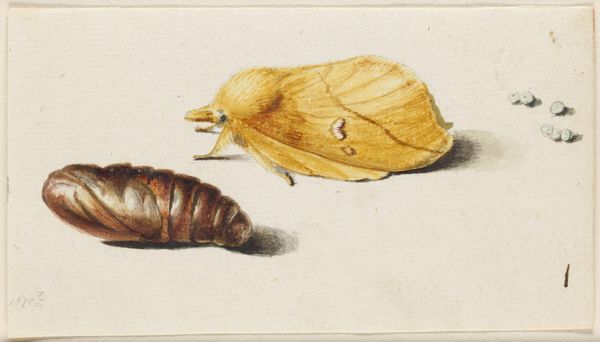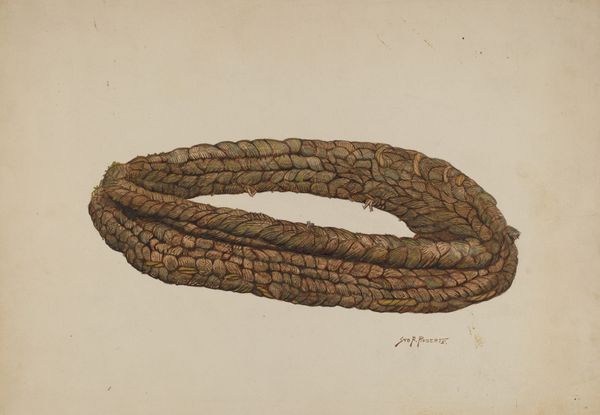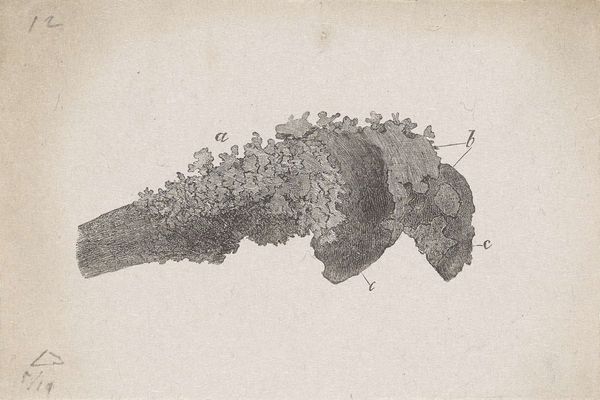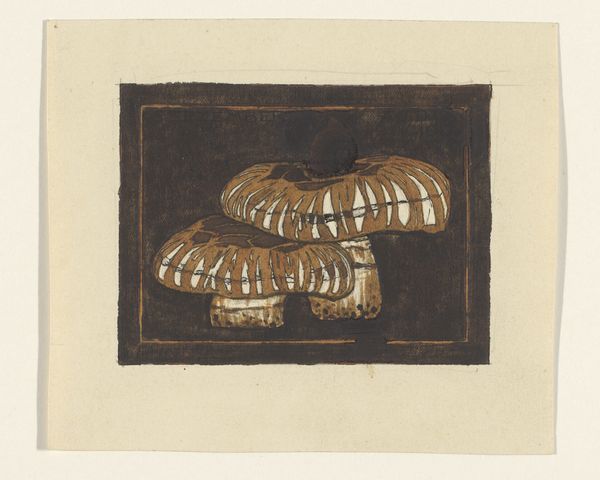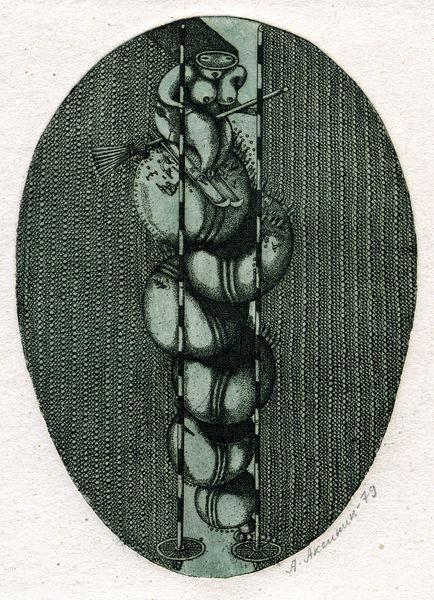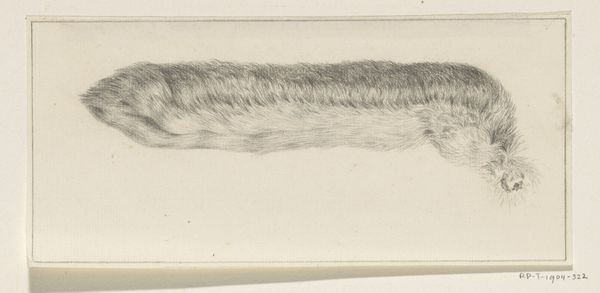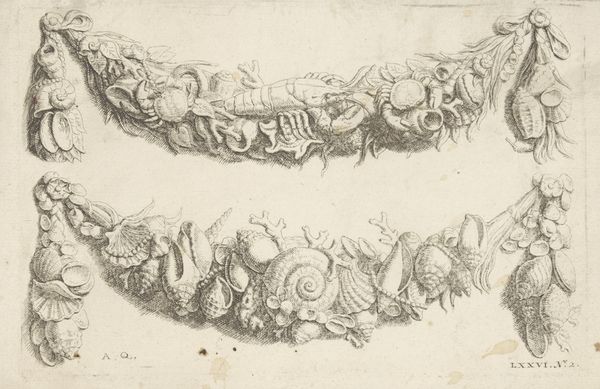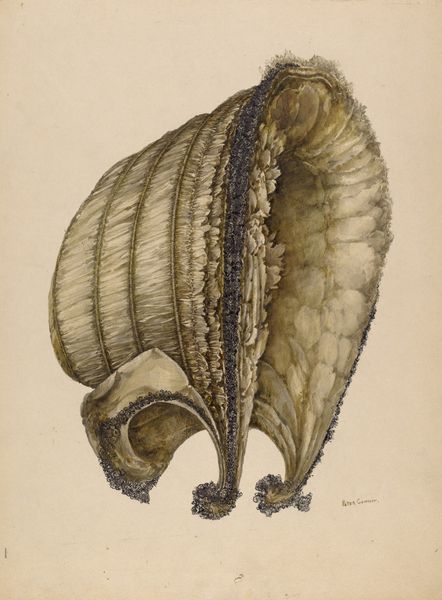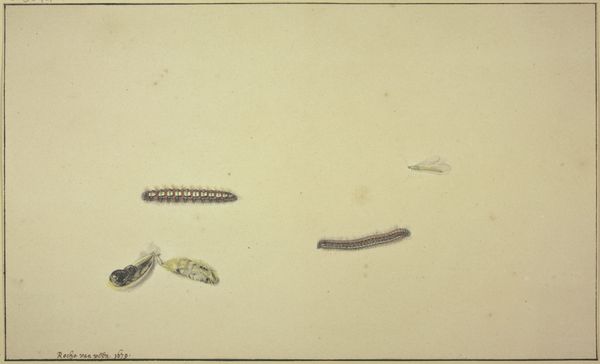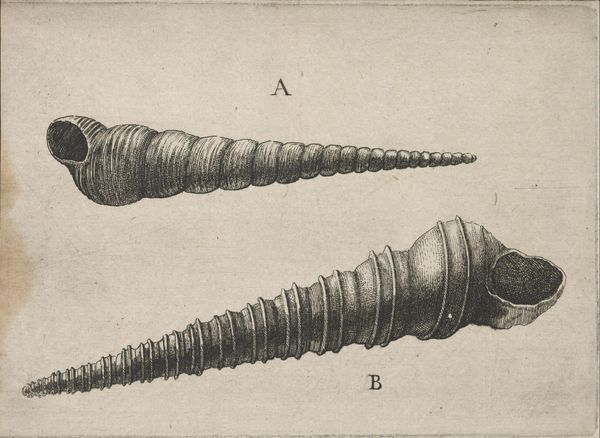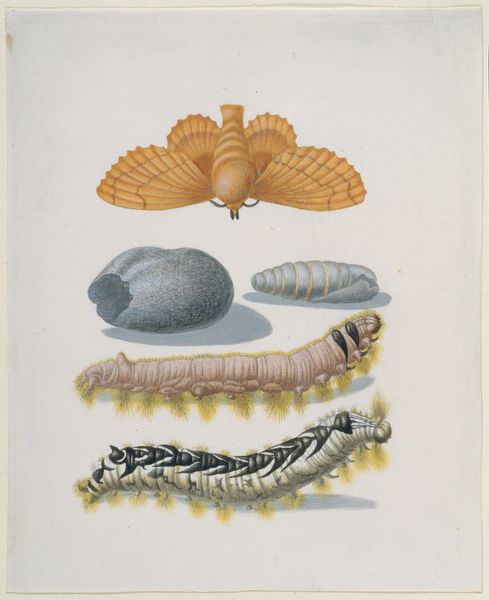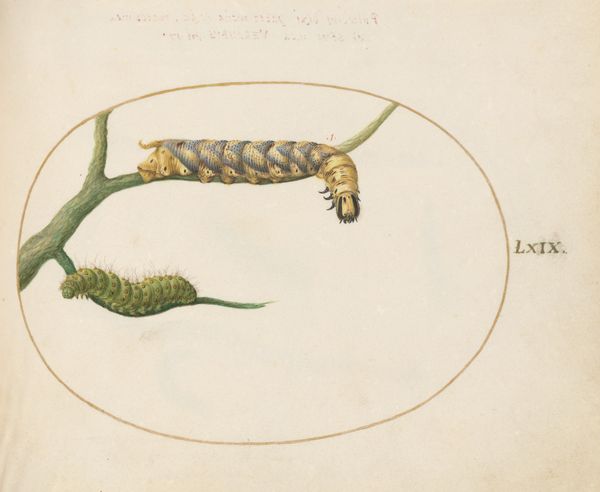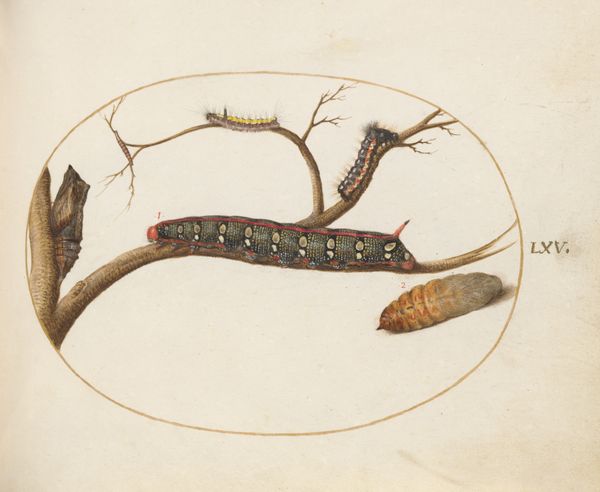
drawing, print, watercolor
#
drawing
#
dutch-golden-age
# print
#
watercolor
#
coloured pencil
#
watercolor
Dimensions: sheet: 2 x 3 7/8 in. (5.1 x 9.8 cm)
Copyright: Public Domain
Editor: This is "A Caterpillar," a watercolor and print by Vincent Laurensz van der Vinne, dating back to sometime between 1650 and 1702. There's something so delicately rendered about it; it’s almost photographic in its detail. How do you interpret this work, beyond just a scientific illustration? Curator: Indeed, it invites a reading beyond straightforward naturalism. Think about the caterpillar itself – what does it represent? It’s a symbol pregnant with meaning across cultures. Transformation, of course, is primary. From earthly crawler to soaring butterfly. In some contexts, the caterpillar is a potent symbol of potential and resilience. What feelings does it stir in you? Editor: Well, now that you mention it, I initially saw something almost grotesque, but the coloring, the detail... it hints at the beauty *within* that transformative process, like a hidden promise. Do you think van der Vinne was conscious of these broader associations? Curator: It's hard to say definitively, but it would be unusual if an artist working in the Dutch Golden Age, surrounded by still lifes brimming with symbolic meaning, was *unaware* of the cultural weight of depicting such a creature. Furthermore, insects at that time were often seen as emblems of mortality and the ephemeral nature of life, memento mori. Editor: So the caterpillar is not just a caterpillar; it's a carefully chosen symbol meant to evoke themes of change, life cycles, and maybe even the fleeting nature of beauty itself. Curator: Precisely. The artist coveys mortality with great beauty. It is something worth pondering. Editor: I see the image in a different light now. What began as a naturalistic study transforms into something profound. Thank you.
Comments
No comments
Be the first to comment and join the conversation on the ultimate creative platform.
